Grammar Teaching Resources
Browse printable grammar worksheets, games for kids and more writing activities for primary school. You'll even find free grammar downloads for your lesson plans to help students learn the different parts of speech, understand sentence structure and learn how to create grammatically correct sentences.
This comprehensive collection of teacher resources was created by teachers for Aussie teachers just like you. Explore printables and digital downloads that are aligned with the Australian English curriculum and easily editable to differentiate instruction for students.
Best of all, each resource has undergone a careful review by an expert member of our teacher team to ensure it's ready for your classroom, your lesson plan and your students!
Is this your first year teaching grammar to kids? Or are you just looking for fresh ideas to engage your students on this aspect of writing? Read on for a primer from our teacher team!
7 Things Teachers Need on Hand for Teaching Grammar
So you're teaching grammar this school year? Welcome to the wonderful world of words (and sentences ... and punctuation!).
You may be wondering what you'll need to prepare to ensure you have everything on hand to actually teach students the mechanics of writing, so our teacher team has put together a comprehensive list of classroom supplies that will make it easier!
- Anchor chart paper and markers
- Graphic organizers
- Writing rubrics
- Postcards and other cards for your writing centers
- Envelopes
- Clipboards
- Samples of writing
What Is Grammar in English? A Kid-Friendly Definition
Before you launch into the wonderful world of writing conventions with your class, it can be helpful to define the meaning of grammar in the context of your instruction.
Here's a definition our teacher team likes to use:
Grammar is a set of rules for writing that help us communicate effectively. It helps us to organise words, phrases and sentences in a way that makes sense to others. Without grammar, our sentences would be scrambled and hard to understand!
How to Teach Grammar — Tips From Our Teacher Team
If you're sitting down to map out your grammar lesson plans, and you're not quite sure where to begin, it can be helpful to take a look at how other teachers structure their lessons.
With that in mind, we asked a few teachers on our team to share their process for doing exactly that!
Start With Phrases and Clauses
One teacher on our team uses this order for her grammar lessons:
- Phrases and clauses
- Sentence types
- Punctuation rules
The reason?
Students need to have an understanding of the difference between a phrase and a clause to lay the foundation for creating organized sentences.
Likewise, it's important to know the difference between independent and dependent clauses before you can start teaching the different sentence types.
Finally, teaching sentence types gives students a solid foundation for introducing comma rules.
Start With FANBOYS
Another teacher on our team suggests teaching grammar in this order:
- Teach students about coordinating conjunctions and the FANBOYS acronym.
- Move on to phrases and clauses.
- Next, work on sentence structure.
- Plus Plan
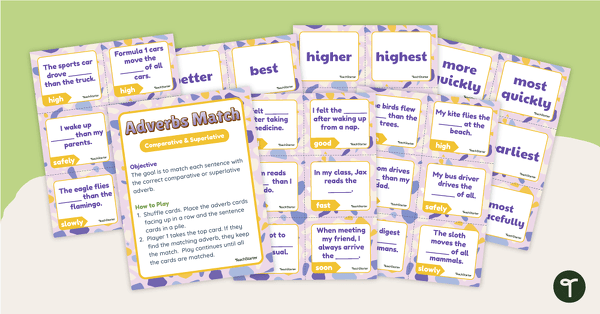
Comparative and Superlative Adverbs - Match-Up Activity
Practice using comparative and superlative adverbs with a matching activity.
- Plus Plan
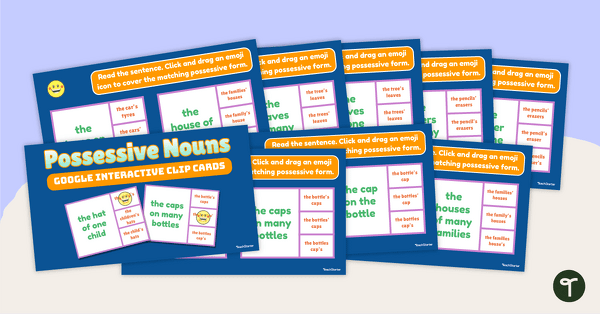
Possessive Nouns - Interactive Peg Cards
Provide digital possessive noun practice activities for your learners with a Google Slides interactive activity.
- Plus Plan
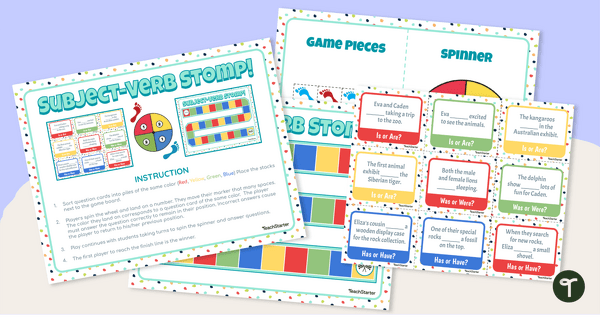
Subject–Verb Stomp! Verb Agreement Board Game
Play a game of Subject-Verb Stomp! to engage your learners and build better sentence-writing skills.
- Plus Plan
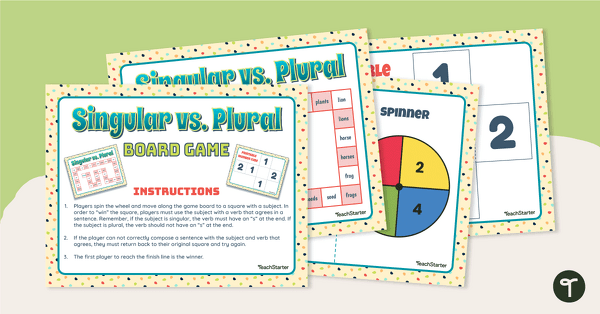
Singular/Plural Subject–Verb Agreement Board Game
Improve sentence structure and grammar skills with a board game that focuses on singular and plural subject-verb agreement.
- Plus Plan
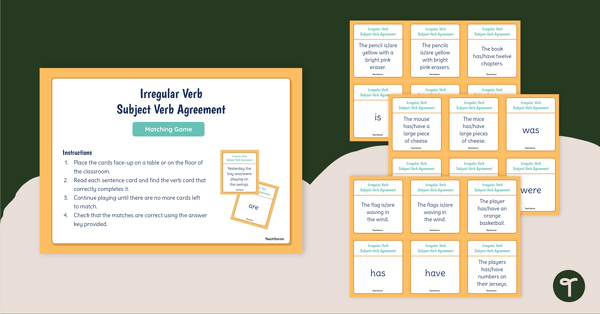
Subject-Verb Agreement Concentration and Go Fish Game
Improve students' sentence structure with a card game focusing on correct subject-verb agreement.
- Plus Plan
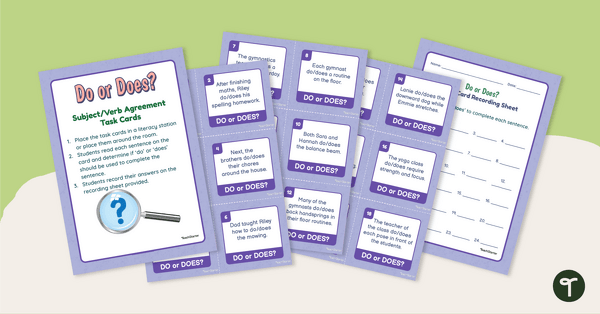
Do/Does Subject Verb Agreement Task Cards
Practise using ‘do’ and ‘does’ correctly using a set of subject-verb agreement task cards.
- Plus Plan
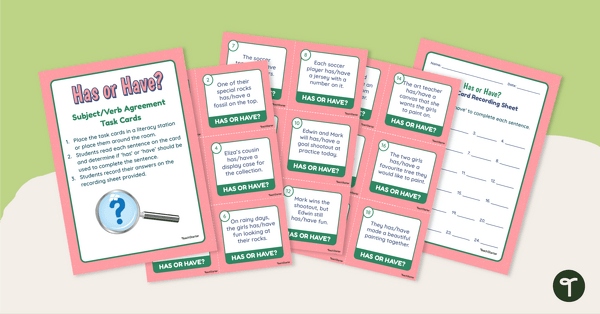
Has/Have Subject Verb Agreement Task Cards
Practise using ‘has’ and ‘have’ correctly with a set of subject-verb agreement task cards.
- Plus Plan
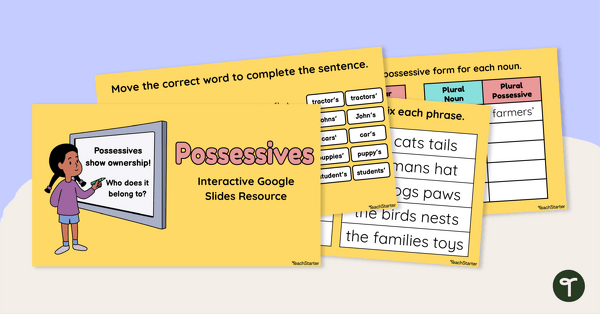
Possessive Google Interactive
Engage your learners with a Google Interactive activity designed to build skill with possessive nouns.
- Plus Plan
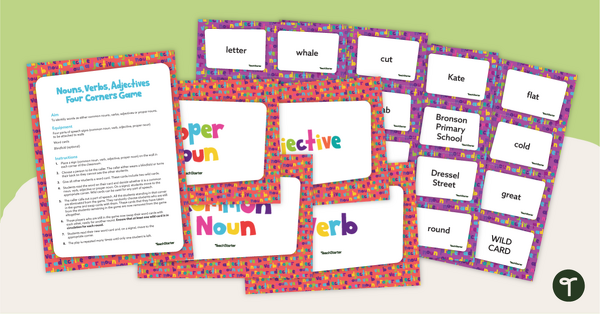
Nouns, Verbs, Adjectives – Four Corners Game
Identify common and proper nouns, verbs and adjectives through this elimination-style types of words active game.
- Plus Plan
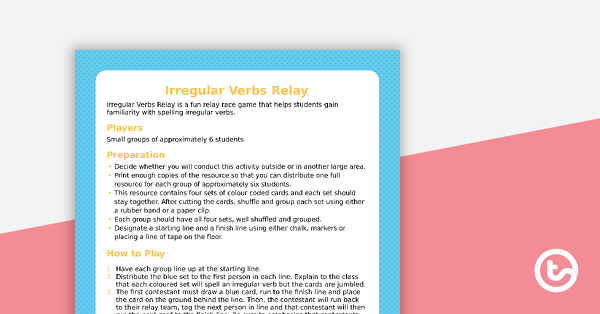
Irregular Verbs Relay
An active relay race game in which students spell out irregular verbs.
- Plus Plan
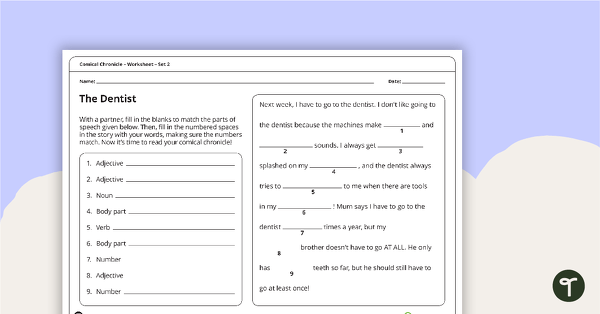
Comical Chronicle Worksheets – Year 3 – Set 2
A set of 10 ad-lib style stories for students to complete.
- Plus Plan
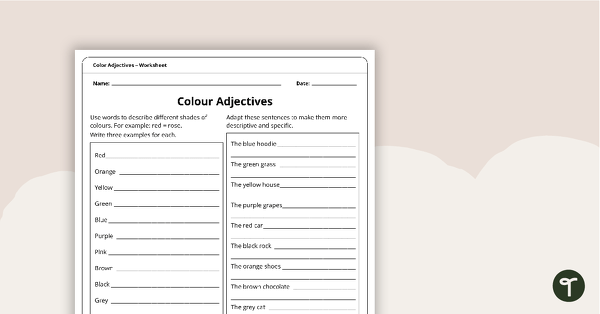
Colour Adjectives - Worksheet
A worksheet activity designed to help prompt students to be more descriptive when describing nouns with colours.
- Plus Plan
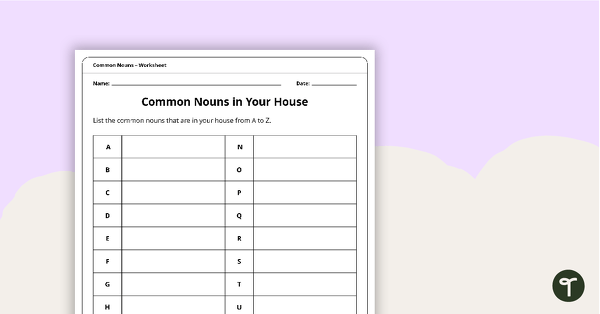
Common Nouns in Your House - Worksheet
Two activities that help students think about common nouns.
- Plus Plan
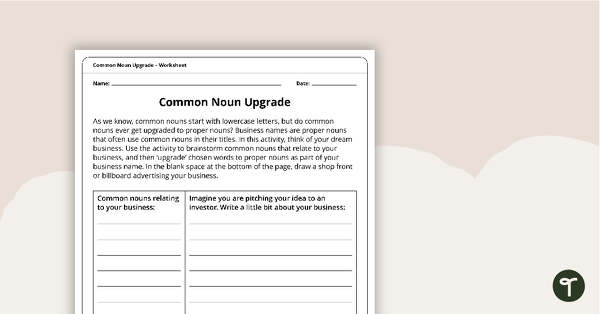
Common Noun Upgrade - Worksheet
A worksheet for students to learn about times when typical common nouns become proper nouns.
- Plus Plan
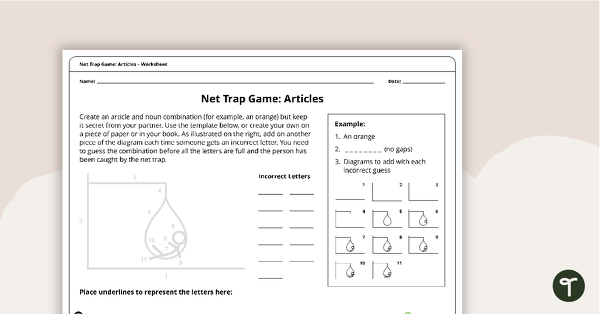
Net Trap Game: Articles - Worksheet
A risky elimination game to help students engage with their grammar skills with articles.
- Plus Plan
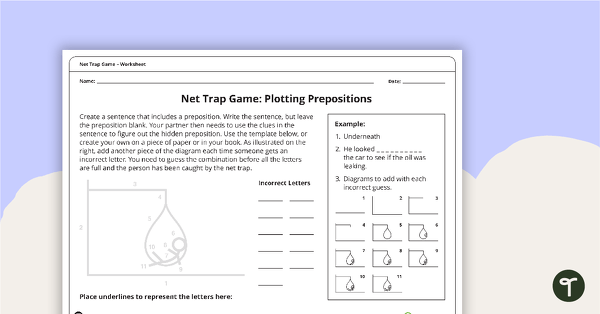
Plotting Prepositions Net Game - Worksheet
A fun guessing risk game that gives students the opportunity to engage with prepositions.
- Plus Plan
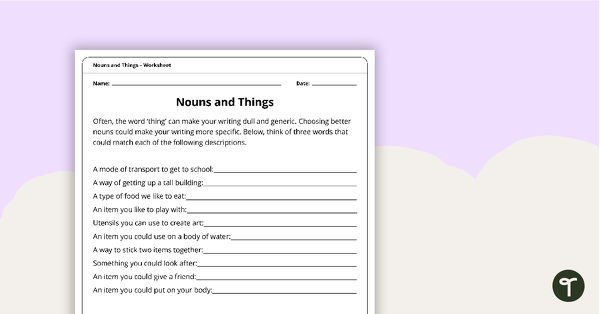
Nouns and Things - Worksheet
A worksheet to help students use more descriptive nouns in their writing.
- Plus Plan
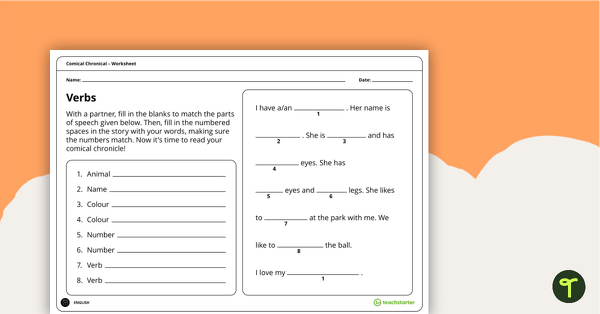
Comical Chronicle Worksheets – Year 1
A set of 10 ad-lib style stories for students to complete.
- Plus Plan
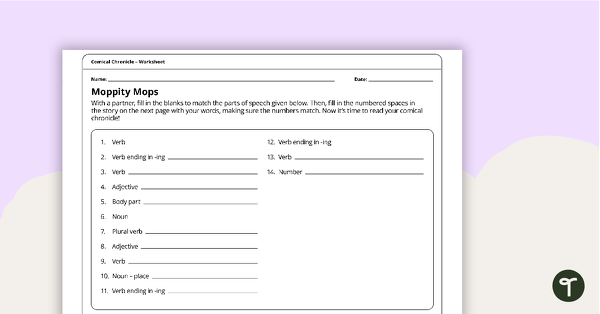
Comical Chronicle Worksheets - Year 4
A set of 10 ad-lib style stories for students to complete.
- Plus Plan
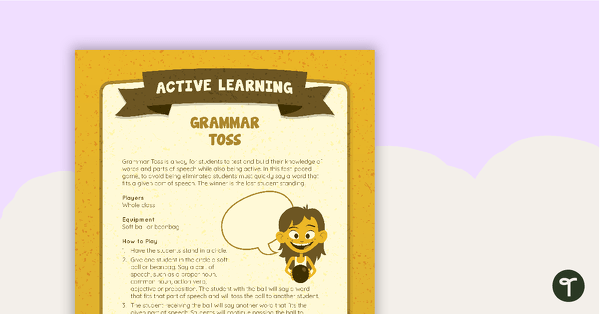
Grammar Toss Active Game
An active game that allows students to test and build their knowledge of words and parts of speech.
- Plus Plan
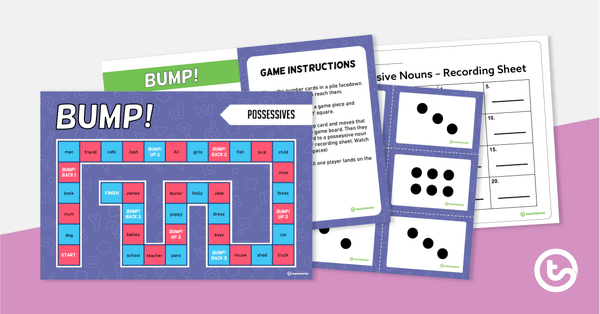
BUMP! Possessive Nouns – Board Game
A board game to practise writing possessive nouns using apostrophes.
- Plus Plan
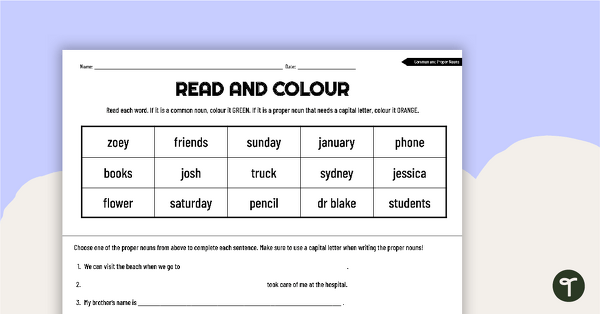
Read and Colour Worksheet – Common and Proper Nouns
A worksheet to practise identifying common and proper nouns.
- Plus Plan
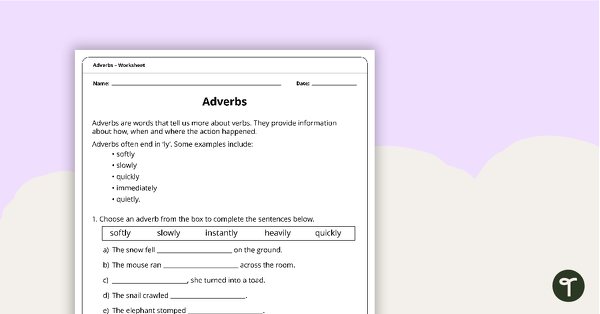
Adverbs Worksheet
A 2 page worksheet that explores the use of adverbs.
- Plus Plan
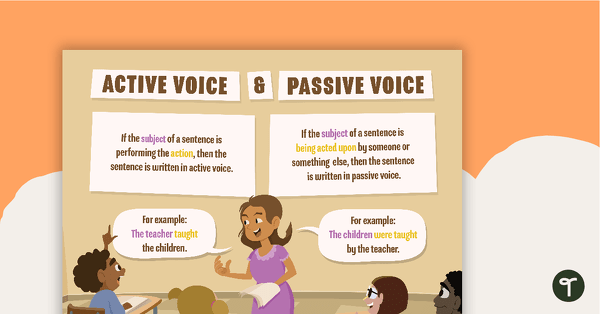
Active Voice and Passive Voice Poster
A beautifully illustrated poster explaining active voice and passive voice.
- Plus Plan
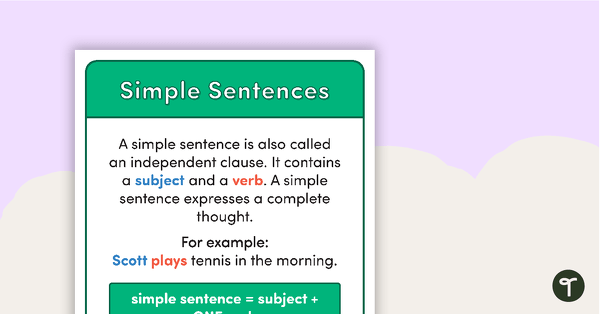
Types of Sentences Posters - Large Text
A set of 7 posters outlining the structure of various types of sentences.
- Plus Plan
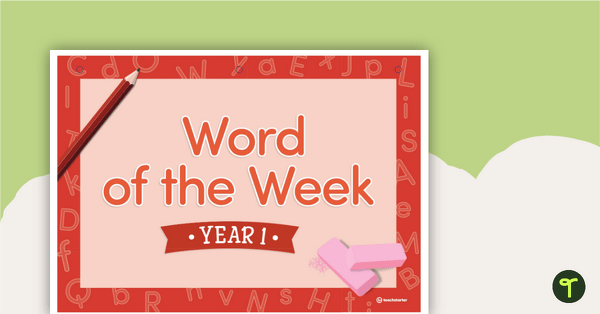
Word of the Week Flip Book - Year 1
A 43 page flip book for introducing new vocabulary to year 1 students.
- Plus Plan
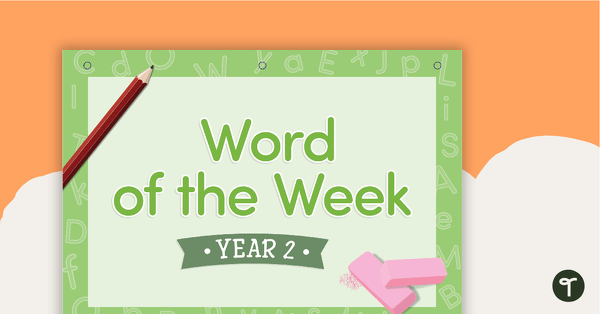
Word of the Week Flip Book - Year 2
A 43 page flip book for introducing new vocabulary to year 2 students.
- Plus Plan
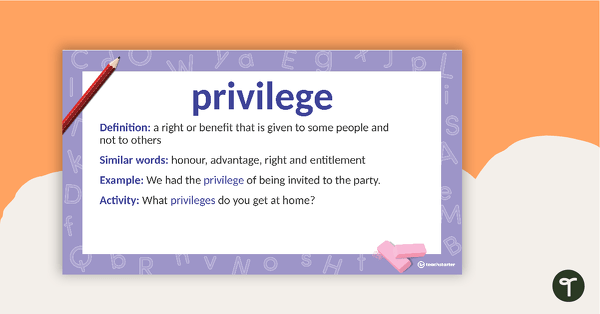
Word of the Week PowerPoint - Year 4
A 40 slide PowerPoint Template for introducing new vocabulary to year 4 students.
- Plus Plan
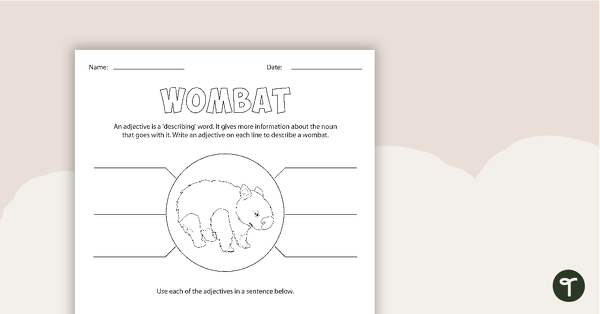
Australian Animals Adjectives Worksheet
A set of 12 Australian animal themed adjective teaching resource worksheets.
- Plus Plan
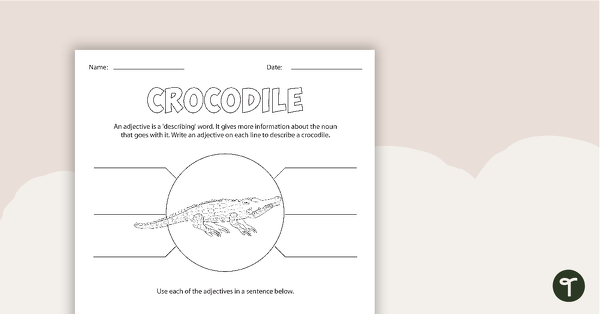
Marine Animals Adjectives Worksheet
A set of 12 marine animal themed adjective teaching resource worksheets.
- Plus Plan
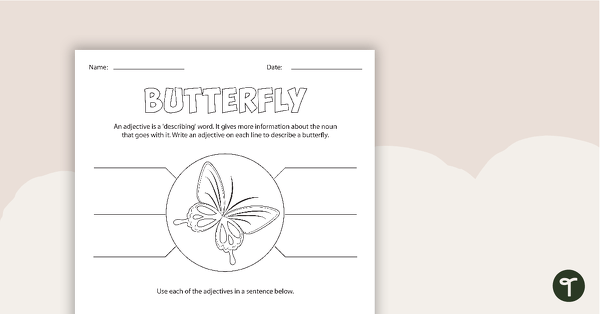
Minibeast Adjectives Worksheet
A set of 12 insect themed adjective worksheets to use in the classroom when learning about minibeasts.
- Plus Plan
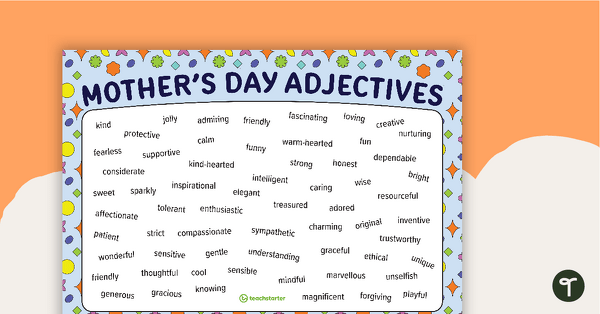
What's the Word? Mother's Day Descriptive Words
Describe the amazing mums in your students' lives with the help of a printable list of Mother's Day words.